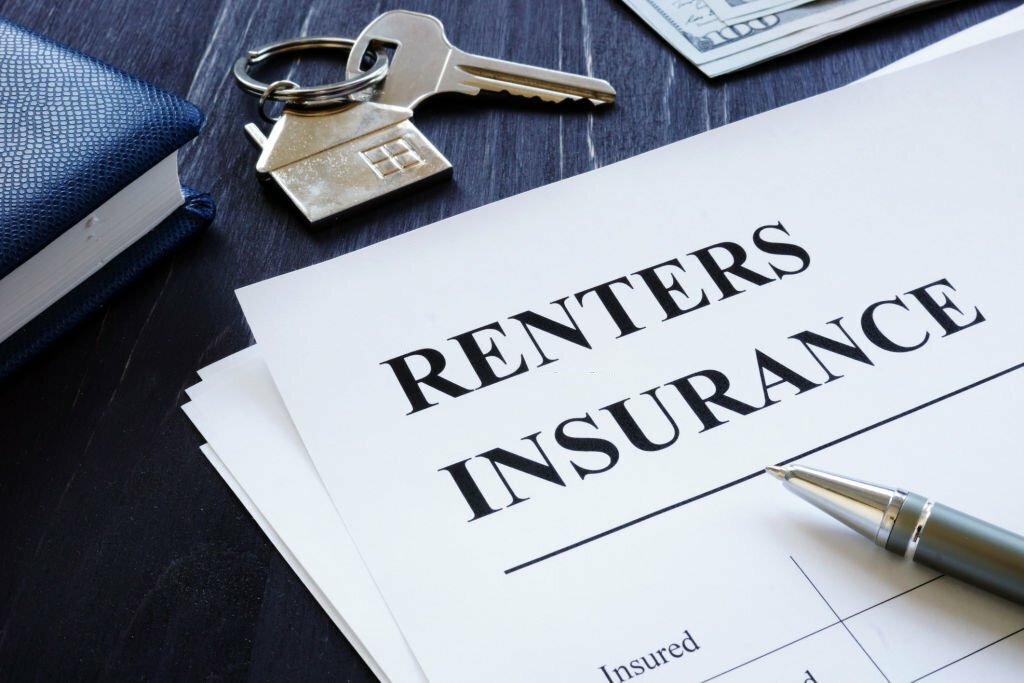Property Insurance: Owning a property means more than just having a place to live or work; it represents a significant asset that demands proper protection.
In an unpredictable world, unforeseen events like natural disasters, theft, or fires can result in substantial financial losses.
It is where property insurance comes into play, offering a safety net for your investment and providing peace of mind.
This article will delve into the significance of property insurance, its various aspects, and its advantages to property owners.
We will explore different coverage options, factors influencing insurance premiums, and how to choose the right policy to meet your specific needs.
Whether you own a residential or commercial property, being well-informed about property insurance is essential for protecting your investment and ensuring financial stability.
So, let’s embark on this informative journey to gain deeper insights into this crucial aspect of property ownership.
Understanding Property Insurance
Property insurance serves as a vital safeguard, offering comprehensive coverage for your property against various risks, including fires, theft, and natural disasters.
Its primary purpose is to protect your valuable investment and provide financial support in the face of unforeseen events that cause property damage or destruction.
While property insurance is commonly associated with homeowners, it is equally crucial for business owners who own commercial properties.
A well-structured property insurance policy typically covers repairing or replacing damaged property.
Additionally, it provides liability protection for injuries sustained by individuals on your property.
One common misconception among property owners is assuming that their homeowner’s insurance policy adequately covers their property or that property insurance is unnecessary.
However, homeowner’s policies often contain exclusions and limitations that leave certain types of damage or loss unprotected.
Furthermore, commercial properties come with unique risks associated with business operations, necessitating specific insurance policies tailored to address those risks.
Therefore, understanding your insurance requirements is crucial to selecting the appropriate policy that offers comprehensive protection for your investment.
Benefits of Property Insurance
Property insurance offers numerous advantages, including financial security, peace of mind, and compliance with lender requirements.
Let’s delve into the key benefits of property insurance:
Financial Security
One of the primary benefits of property insurance is providing financial security. Unforeseen events like fires, theft, or natural disasters can lead to substantial repair or replacement costs.
Insurance can make these expenses manageable and may even have severe financial consequences.
Property insurance acts as a safety net, protecting you from potential bankruptcy and ensuring the safety of your investment.
Peace of Mind
Property insurance instills a sense of tranquility and alleviates stress. Knowing that you are safeguarded against emergencies provides peace of mind.
In the event of an unforeseen incident, you can rest assured that you have the financial and legal support needed to handle the situation effectively.
Compliance with Lender Requirements
For individuals with mortgages or loans secured by their property, maintaining property insurance is a mandatory requirement set forth by lenders.
Lenders aim to protect their investment since the property is collateral for the loan. Adherence to lender requirements is of utmost importance if you wish to avoid loan default and the potential loss of property.
Types of Property Insurance Coverage
Property insurance offers a range of coverage options, each tailored to address diverse risks and scenarios. Here, we explore some of the most common types of coverage:
Homeowner’s Insurance
This policy provides comprehensive coverage for your home and personal belongings, offering financial protection in case of damage or loss caused by risks like fire, theft, or natural disasters.
It facilitates repairing or replacing your home and belongings, ensuring your peace of mind.
Flood Insurance
Flood insurance is a distinct policy designed to safeguard your property against flood-related damages.
It is crucial for property owners residing in flood-prone areas, as typical homeowner’s insurance policies exclude coverage for flood damage.
Earthquake Insurance
Intended for individuals residing in earthquake-prone regions, earthquake insurance effectively covers property damage resulting from seismic activity.
Since standard homeowner’s insurance policies typically exclude such coverage, earthquake insurance is vital to protect your property.
Commercial Property Insurance
Commercial property insurance caters to the unique needs of business owners who own commercial properties such as retail stores, office buildings, and warehouses.
It offers extensive coverage for property repair or replacement costs, alongside liability protection in the event of injuries sustained on the premises.
Landlord Insurance
Tailored for property owners who lease their properties to tenants, landlord insurance ensures comprehensive coverage for the property and provides liability protection against damages or injuries caused by tenants.
Protecting your investment and mitigating the associated risks are both central components of renting.
Factors Affecting Property Insurance Premiums
Various factors come into play when determining property insurance premiums, including property type, location, age, and claims history.
Here are vital considerations that insurance companies evaluate when establishing premiums:
Property Type
The type of property you own plays a significant role in determining insurance premiums.
Commercial properties, for instance, often entail a higher risk of liability claims than residential properties, potentially leading to higher premiums.
Location
The geographical location of your property is a significant factor in determining insurance premiums.
Properties located in regions prone to natural disasters or high crime rates typically incur higher premiums than properties located in safer areas.
Property Age
Your property age can have a direct bearing on its insurance premiums. Older properties may be more susceptible to damage or costly repairs, increasing insurance providers’ risk profile and possibly leading to higher premiums.
Claims History
Your claims history has an effect on insurance premiums as it indicates how high-risk you may be to insurance providers, prompting them to charge higher premiums as a result.
Frequent or substantial claims could make insurance providers view you as more of a threat and prompt them to increase premiums accordingly.
Choosing the Right Property Insurance Policy
Selecting the right property insurance policy is crucial for safeguarding your investment. Here are vital steps to follow when choosing the ideal policy:
Evaluate Your Insurance Requirements
Begin by assessing your unique insurance needs and identifying the specific coverage required. Consider your property type, associated risks, and budget constraints.
Compare Multiple Policies
Don’t solely focus on the price tag. Take the time to compare policies, examining coverage limits, deductibles, and exclusions.
Assuring that the approach you have selected meets both your needs and offers adequate protection is of utmost importance.
Thoroughly Review the Policy Details
Before finalizing any insurance agreement, carefully read and understand the terms and conditions.
If there are any uncertainties or questions, contact the insurer for clarification. Being fully informed about the policy provisions is essential for making an informed decision.
Select a Reputable Insurer
Choose an insurer with a solid reputation for excellent customer service, efficient claims handling, and financial stability.
To assess their credibility, refer to independent websites like A.M. Best or Standard & Poor’s to review their ratings. Working with an insurer that is reliable will give you peace of mind should a claim arise.
By following these guidelines, you can navigate the process of choosing a policy effectively, ensuring that your investment receives the comprehensive protection it deserves.
Tips for Making a Property Insurance Claim
When facing an emergency that necessitates filing a property insurance claim, the process can be daunting and complex. To help ease this process, here are some helpful suggestions:
Promptly Contact Your Insurance Company
Contact your insurance company immediately after the incident. Provide all the essential details, such as your policy number, the incident date, and a comprehensive description of the damage incurred.
Collaborate With the Claims Adjuster
An appointed claims adjuster will assess the extent of the damage and determine the appropriate compensation amount.
Cooperating fully with the claims adjuster is essential in order to facilitate a streamlined claims process. By providing all relevant details, this should make for smooth sailing claims procedures.
Maintain Accurate Records
Carefully document any communication with your insurance provider, from phone conversations and emails to written correspondence sent.
Doing this will allow you to easily monitor the progression of your claim as well as provide evidence should any disputes or clarifications arise later on.
By following these tips, you can confidently navigate the claim process and ensure effective communication and documentation for a more expeditious resolution.
Property Owners Should Explore Additional Coverage Options
Property owners can explore additional coverage options beyond standard property insurance plans to enhance the level of protection for their assets:
Umbrella Insurance
Umbrella insurance offers an extra layer of liability protection that extends beyond the limits of a standard policy.
It becomes precious for property owners seeking additional safeguards against potential lawsuits and other liability claims.
Equipment Breakdown Coverage
Equipment breakdown insurance covers expenses related to repairing or replacing mechanical and electrical failures on equipment and systems that is covered under its policy.
This coverage is essential for property owners relying heavily on critical systems, such as HVAC or electrical systems, as it offers financial protection against unexpected breakdowns.
Identity Theft Coverage
Identity theft coverage provides financial and legal support in the event of identity theft.
Property owners who prioritize protecting themselves against cybercrimes and fraud will find this service invaluable.
By considering these additional coverage options, property owners can tailor their insurance policies to provide additional protection beyond what’s covered under standard policies – thus assuring comprehensive protection for their valuable investments.
Consistent Review of Property Insurance Plans
Re-assessing the plan regularly is crucial to ensure adequate protection and maximize investment returns. Here are key points to keep in mind during a policy review:
Changes in Property Value
If the value of your property has experienced significant fluctuations, it’s essential that your coverage limits are adjusted appropriately to protect against potential risks.
By reviewing coverage limits against current value of property and making necessary updates when necessary.
Change in Risks
Any alteration to the risks associated with your property requires an update of your policy.
For instance, changing coverage if installing a pool or starting up a home-based business are two examples where an update could be beneficial; adapting your policy ensures any potential liabilities or unique risks are adequately covered and addressed by insurance.
Changes in Insurance Premiums
Any significant increases in insurance premiums should prompt you to explore other options.
It’s advisable to shop around and compare policies from various insurers in order to find the best value for money and identify potential savings without compromising coverage or protection of your property.
By actively reviewing and assessing your policy, you can ensure it aligns with the current value of your property, adequately addresses risks involved, and offers optimal coverage and value.
Common Misconceptions About Property Insurance
Its Educating property owners on common misconceptions surrounding property insurance is vitally important to their own welfare, so becoming familiar with some prevalent myths should serve to keep them well informed.
Here are a few noteworthy issues in this regard.
Misconception: Homeowner’s Insurance Covers Flood Damage
Fact: Homeowner’s policies typically exclude coverage for flood-related risks; to ensure comprehensive protection from such threats in flood-prone areas, individuals should purchase additional flood coverage policies.
Misconception: Property Insurance Covers Everything
Fact: Property policies contain specific exclusions and limitations that may not cover every type of damage or loss. Therefore, it’s essential that policy holders read and comprehend their policies thoroughly to understand their coverage, potential exclusions and restrictions as well as any possible exclusions and restrictions that might exist.
Misconception: Property Insurance Is Too Expensive
Fact: While property insurance premiums may seem costly, not having any can lead to much greater expenses in the form of repair and replacement expenses that may exceed even what insurance pays out – potentially even leading to bankruptcy! It is a worthwhile investment when compared with potential financial risks of being uninsured.
Conclusion
Property insurance is vital in safeguarding your investment and maintaining financial stability.
It is imperative to grasp the various coverage options, the factors impacting insurance premiums, and the process of selecting the ideal policy to optimize the value of your insurance.
Consistently reviewing your policy and exploring additional coverage options can further increase your level of protection and help make the most of your insurance investment.
By investing time and effort in understanding and making informed choices, you can confidently shield your investment and experience a sense of security, knowing you are well-prepared for unforeseen circumstances.





